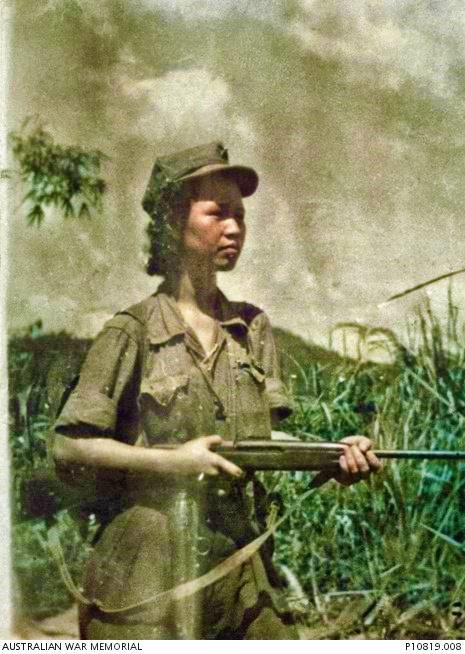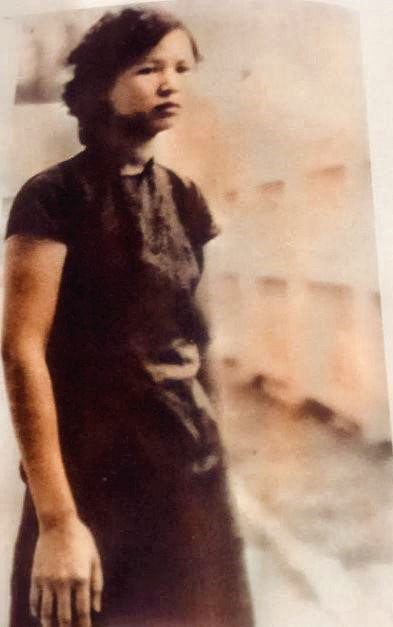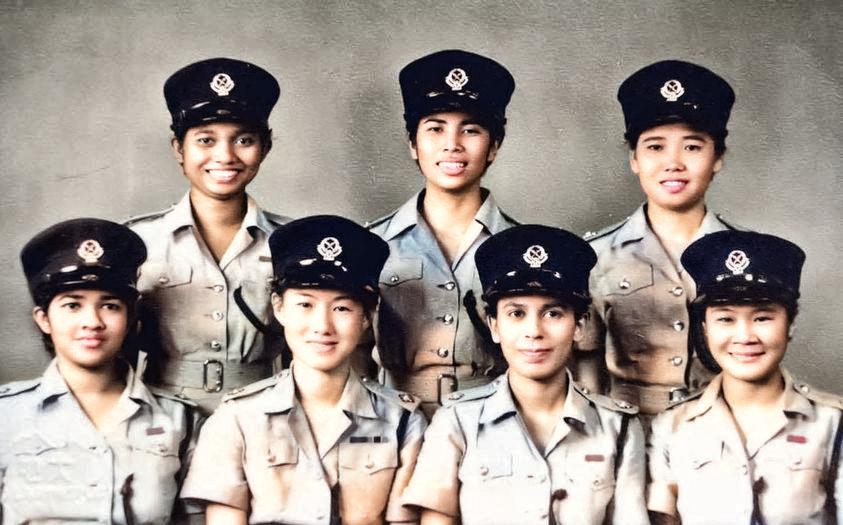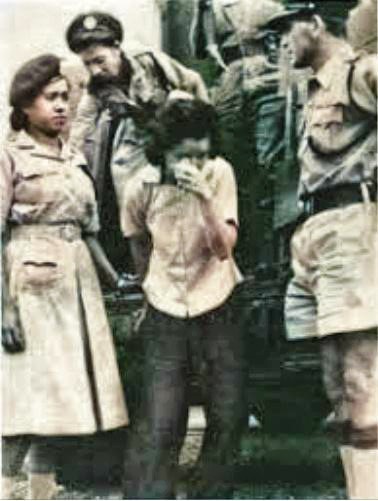Lee Meng Malayan Communist Terrorist ~ legends of the Dragonfly
Lee Meng Malayan Communist Terrorist
Lee Meng already had a reputation as a cunning fighter and organiser. She was also “one of the most ruthless and capable members of the Min Yuen (terrorist financial support organisation)” in Ipoh. Surrendered and captured communist guerrillas claimed that Lee Meng herself personally ordered several brutal cold-blooded executions that were carried out by Communist Special Service squads. Malayan Communist Party terrorist leader Chin Peng described her as “dedicated, active and brave” but he further commented that she “lacked caution” and was reckless in her operational style. Lee Meng was born in Guangzhou, China, in 1926 and moved to Ipoh at the age of five. She was believed to have worked as a Chinese school teacher in Teluk Anson (now known as Teluk Intan), Perak, during the British Military Administration period – the interim military government established in Singapore and Malaya after the Japanese surrender on 12th September 1945. Her father was unemployed and lived with her uncle and aunt, while her mother would be banished to China in 1950 after she was arrested for communist activities. Given Lee Meng’s disenfranchised background and her mum’s own involvement with the communists, it is not surprising that she readily joined the Malayan Communist Party in 1942 when she was recruited by her schoolteacher. When Lee Meng was finally arrested and appeared before the Magistrate’s Court in Ipoh on 6th August 1952, she was charged with three offences – being armed with a pistol and a hand grenade between August 1948 and September 1951 in Ipoh, and for consorting “with persons who were carrying firearms and acting in a manner prejudicial to the maintenance of good order”.
No references were made to her activities as a courier to avoid compromising Special Branch operations that were going on at the time and neither was she charged as a communist. The Special Branch hoped that when Chin Peng received news of her arrest, he would assume that her courier activities had not been exposed. In court, she denied that she was Lee Meng but claimed to be the person of Lee Ten Tai. Lee Meng also denied ever living in the jungle and claimed that she did not know what a hand grenade was. However, several communist guerrillas testified in court that they had seen Lee Meng armed with grenades and was a senior MCP member. Amazingly, Lee Meng was initially found not guilty during her first trial on 27th August 1952. But a retrial was ordered on 10th September the following month. On this occasion time, Lee Meng, now dubbed the “grenade girl” by the press, was found in a legal court of law guilty of terrorist acts and duly sentenced to death. According to one account, while Lee Meng was remanded in Taiping Jail, she tried to seduce the male jailer on night duty in an effort to become pregnant. She knew that British law did not permit a pregnant woman to be executed. Unfortunately for Lee Meng, the authorities discovered the plot and replaced him with a female jailer.
During her retrial on 10th September 1952, Lee Meng appealed to the Malayan High Court against her death sentence, but her case was dismissed on 14th November. She was returned to Taiping Jail to await her fate while her lawyers lodged an appeal to the Judicial Committee of the Privy Council in London on 14th February 1953. The appeal was unsuccessful and a petition for clemency was then sent to the Sultan of Perak on 23rd February 1953. The petition was approved and just two weeks later on 9 March, Lee Meng’s death sentence was commuted to life imprisonment in Taiping Jail. While in prison, she passed her time knitting shawls and even learned to speak “superb Malay”. But there was another twist to the Lee Meng story. Lee Meng’s trial had generated worldwide interest, with the government receiving petitions for her to be spared the death penalty. Moreover, the Cold War between the Soviet Union and Eastern Bloc countries and the United States and its NATO allies was in full swing. Both sides conducted espionage activities on each other to gain the upper hand in the battle for dominance.
It was against this backdrop, on 2nd March 1953, that the Hungarian government offered to swap Lee Meng for a British businessman, Edgar Sanders, who was serving a 13-year jail sentence in Budapest for espionage. Almost overnight Lee Meng’s case became a cause celèbre. However, the offer of a prisoner swap was turned down by the British. Lee Meng was incarcerated at Taiping Jail until her release and banishment to China on 23 November 1963 – the same fate that had befallen her mother in 1950. However, it was only in January 1964 that the Malaysian government announced her deportation. Before Lee Meng left, she asked the lawyers who defended her, the Seenivasagam brothers (Sri Padhmaraja and Darma Raja, popularly known as S.P. and D.R. Seenivasagam), to buy her two bicycles, a transistor radio, blankets, a mattress, several watches and some gold bangles so that she could bring these to China. In China, she was reunited with her mother, whom she cared for until the latter passed on. She also met Chen Tien, Chin Peng’s “trusted aide and comrade”, and married him in 1965. He passed away on 3rd September 1990 from lung cancer. In August 2007, Lee Meng visited Malaysia. During her visit, she called on one of her trial lawyers, Lim Phaik Gan, to thank her for “securing her release”. It was reported that Lee Meng passed away in Guangzhou, China, on 2nd June 2012 at the age of 86.
The girl from Ipoh
During the 50's, the communist were having an upper hand as they had perfected their skills in guerrilla warfare. And part of their success were owed to one very innocent looking young woman from Ipoh. Her name was Lee Ten Tai, or better known as Lee Meng. At 26 years old, she was already a hardened guerrilla as she had joined the organisation in 1942 at the age of 16. As she was found to be very good in organising information, Chin Peng had assigned her to be responsible for communication for the whole of Communist Party of Malaya. She was also responsible for the group's special unit known as Special Mobile Squad. One of their more infamous attack was the attempted assassination of Tun Tan Cheng Lock using a hand grenade.
Yet, no one suspected that Lee Meng was a communist leader. That was until Detective Inspector Irene Lee of Special Branch came into the picture. Intrepid, cunning and resourceful, Lee Meng had finally met her match. Disguising herself as a member of Min Yuen (Malayan Communist financial support organisation), she was able to crack Lee Meng's network. And she herself had gotten the opportunity to arrest Lee Meng.



